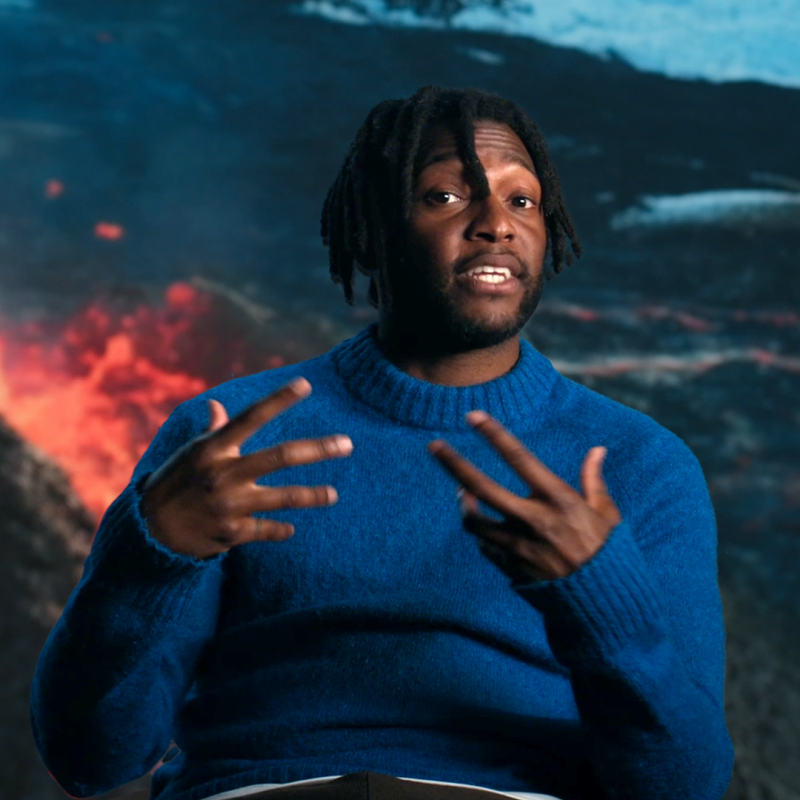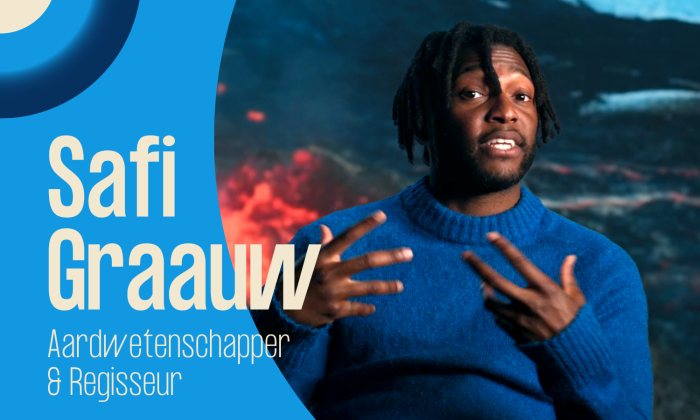
With his documentaries and films, earth scientist and director Safi Graauw hopes to be a bridge between man and nature. How did his fascination for nature come about and how does he try to inspire people?

When he was 21 years old, Safi Graauw bought his first film camera. He practiced for days in his room to capture a crisp
As a director, Safi Graauw makes fiction, commercials and documentaries. His work has won several awards. You may know Graauw from the KRO-NCRV series Couriers, Spaceship Earth with André Kuipers, but also from his nature documentaries for National Geographic and Justdiggit, among others.
What was the moment you became fascinated with nature?
‘I was born in Suriname and in my youth I always had nature around me until I came to the Netherlands. Suddenly it wasn’t there anymore. I started watching a lot of nature documentaries then, I think I was about eight years old. That’s where my fascination for nature really started. In that documentary they said things like ‘look at this beautiful landscape and this beautiful elephant is under threat’. As an eight-year-old boy I thought: I want to do something about this.’
How does nature affect you now?
‘If you have scientific knowledge, you look at nature very differently. Then a tree is so much more than a collection of branches and leaves. You see so many more things. I try to convey the wonder I have about nature to other people by associating things they recognize with my subject.
How do you convey that message in your work?
‘By cutting difficult topics into things we all feel. An example: I am the director of the Dutch Soil episode and we are talking about death. That is a subject that everyone has something to do with, but we actually forget that it makes us part of the soil and everything that grows. From dust you come and to dust you will perish. By cutting the subject dead to the ground, you give a feeling to something that people normally have no feeling for.’
Do you think people are aware enough about climate change?
‘As long as we live in a world where we don’t want to give up our personal freedoms such as vacations by plane, I don’t think people are aware of that enough. Not even at all. If you have the means, you can do whatever you want.’
‘We live in a very safe world and therefore don’t always think about what is happening around us. We even believe that this safe world will always be there. We are not aware of the danger of climate change because we are not confronted with it every day. No, we don’t have tornadoes, droughts and floods yet, but we will. It’s a matter of time.’
Do you deal with that on a daily basis?
‘Every day. I myself have had to hear the stories of people succumbing to the drought in Africa. That makes you very aware. In my seventies, my generation is more likely to die from heat waves. Nowadays there is a heat wave every year, which used to be much rarer. I am busy every day realizing how fragile we are.’
What can people do in an accessible way to contribute?
“I think you have to be willing to give up liberties. A simple example of this is leaving the car at home. Everyone can think: today I will leave the car at home and walk. You know what? I just make it a habit. Or even better: I will also encourage people around me to walk. That’s something you can do very easily.’
‘You can also spread awareness. Don’t lecture people, but show that you make certain choices for yourself and are steadfast in that. Those two things are important. Make sure that you build up that urgency from within society. Do it as a community and put it on the political agenda.’
Finally: what do you do to live more sustainably?
‘I’m flexitarian. Meat is a delicacy for me, like caviar. I don’t drive a car and when I travel within Europe I do it by train. I also have a small house of fifty square meters, so I use less energy to heat my house. I have up to 33 timeless pieces in my wardrobe that are super durable. I have arranged my life to have an impact, so I make sure that I have achieved my personal goals for 2030, if we all do that we will make an impact.’
Read more (in dutch): https://kro-ncrv.nl/regisseur-safi-graauw-over-klimaatverandering-besef-is-dat-we-vrijheden-moeten-opgeven